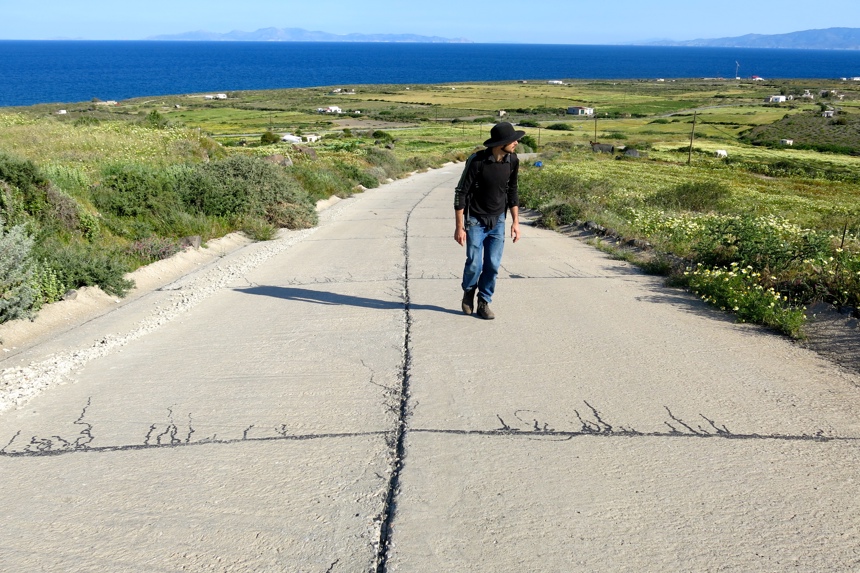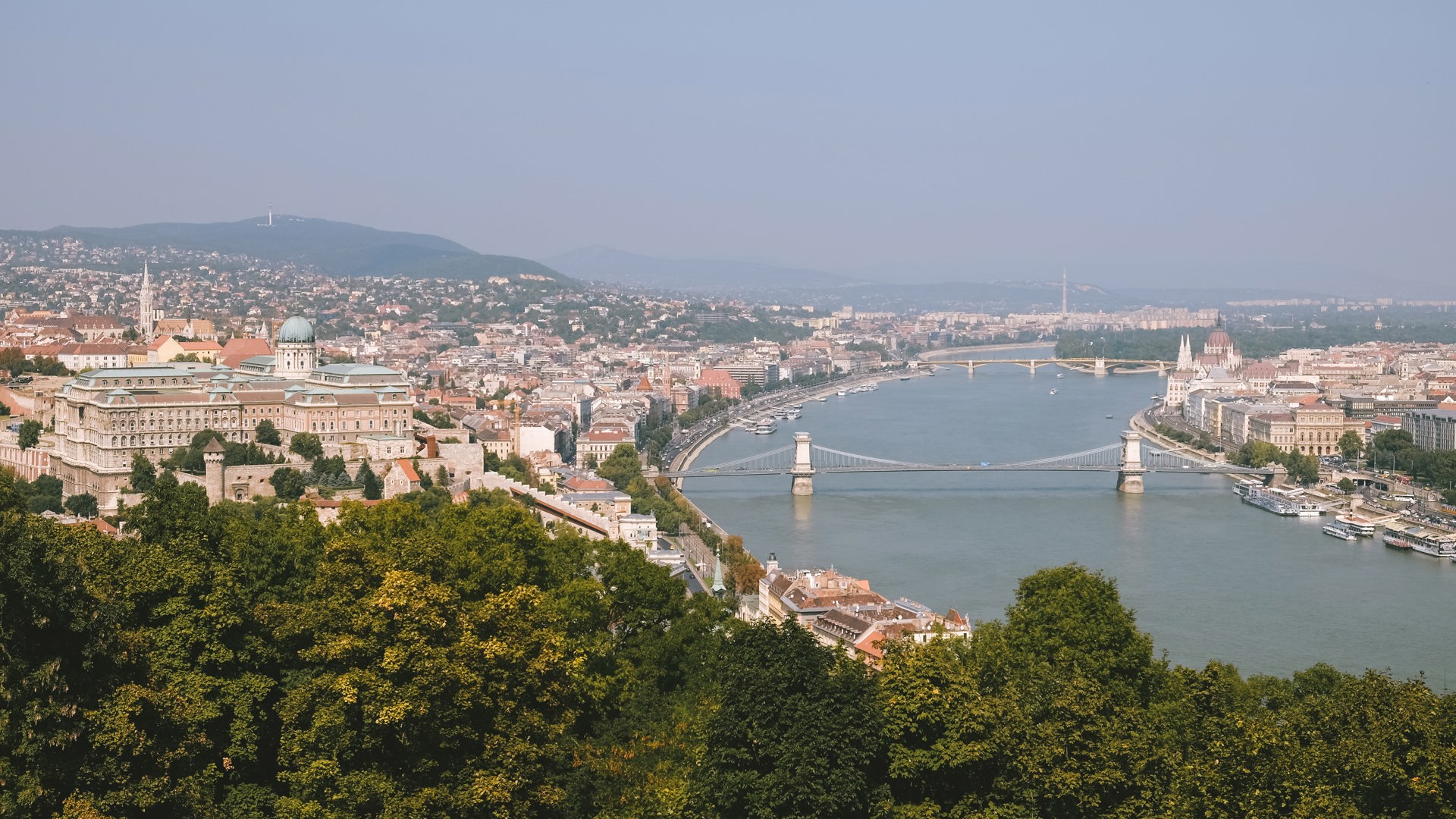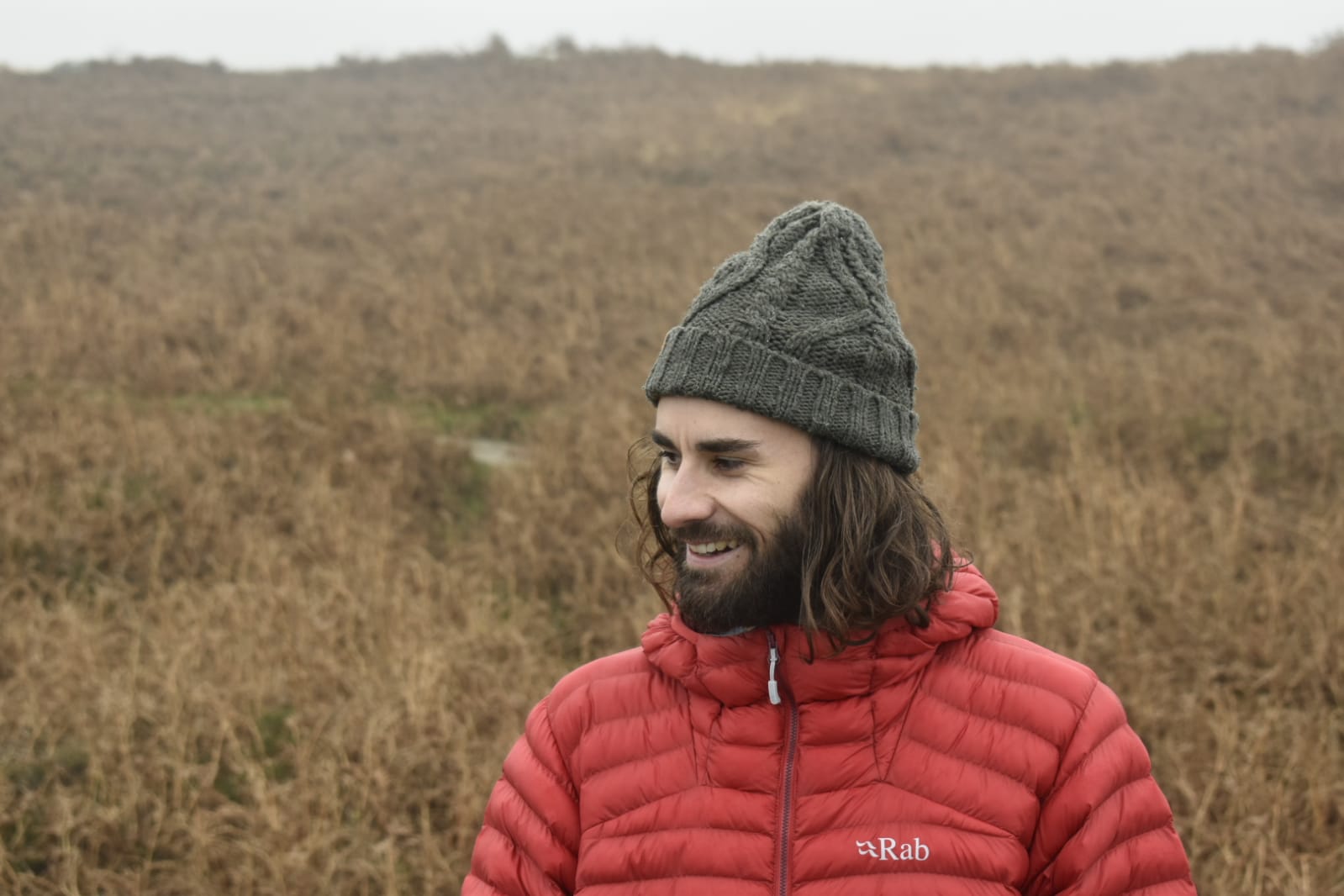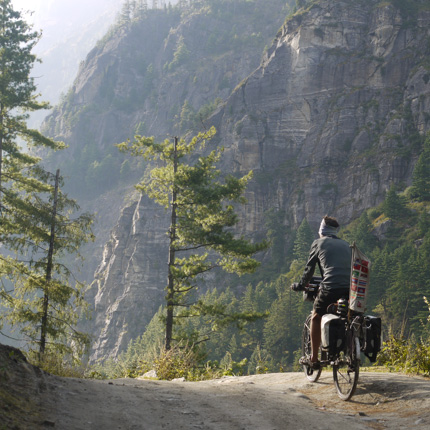
“Storytelling … in a sense that’s where my heart is,” Nick says when I ask how he thinks about what he does. “I really do it for fun. It’s satisfying on a personal level in many ways, having that direct contact where you say something and you have a reaction immediately.”
He is speaking about oral storytelling, but this enthusiasm runs through all his work. As well as telling stories he writes stories (often about stories) and listens to stories when he travels - stories of wind, walking, pirates, decline and much else besides. His storytelling is concerned with the power of storytelling.
But what makes a story compelling? Partly it is the storyteller, he says. There is a certain quality - what writers might call ‘voice’ - that makes a story shine. “But I suppose the essential thing,” he says, “is about telling a wider story.”
This helps to understand the cornerstone of Nick’s books: the relationships between landscapes and humans. Landscape is in a sense the oldest, widest tapestry we know, and recorded within it is the widest human story of all: our history as a species.
“I’m interested in these subtle invisible things that shape us that we don’t think about, and we don’t seem aware of and don’t tell ourselves are important,” Nick explains. There is no better symbol here than the wind, the subject of his second book, the motivation for which “was obviously this fascination with how invisible forces affect us all the time - not only individuals but cultures and timelines of history.
“I like the idea that it undercuts this idea that we’re separate from nature and that it doesn’t matter what it does: we’re humans and we’re individual, independent, we can do what we want, as if we’re in some kind of sphere that’s not affected by anything around it. That breaks down immediately as soon as you think about any kind of weather condition and what that does to people.”
This explanatory power has much to offer. “It excites my imagination,” he continues. “It seems to make the world more interesting, in the way that the green parakeets make London more interesting and surprising - and just kind of weirder.”
One influence of landscape, in fact, is on the imagination itself - that it “can trigger things in the imagination.” Nick’s work is therefore about “travelling beyond the physical - travelling into ideas and memories and mythic territories.”
This is particularly true of his next book, which is about unlikely landscapes in Europe. “I’ve realised it’s about the imagination more than the physical journey,” he reflects. “I’m going to this desert in Spain which is a tiny little scrap of something that looks like a desert enough for them to film the old spaghetti westerns there. I could go to the Gobi Desert or the Kalahari Desert or the Sahara, and I’d love to, but in a way this interests me more, because it’s part of Europe and it’s part of the continent which is my home. But also because it is this imaginative thing: can I experience what it’s like to be in a desert in this sort of timeless, inhuman place somewhere that’s so close to civilisation?”
Nick walking in Greece

Deeply exploring these connections requires a slow, considered experience of landscape. Walking has thus proven Nick’s trustiest mode of travel. “When you’re walking it’s completely unavoidable that you spend most of your time obsessing about (landscape). It sort of permeates your body and every thought you have.”
As a traveller, this immersion does have limits. “I’m aware that I do miss most things walking through and not knowing a place deeply, and I certainly feel conscious of not wading in with opinions so soon, which is really important.” He cites his experience in the Pennines, where a repeated failure to find the Helm led to further visits and a richer experience.
The outsider perspective has its own value, though. Nick tells the story of D.H. Lawrence, who was known for spending an hour in a place before retiring to his hotel to write a complete piece. “Actually this spirit he would pick up was quite accurate … I’m not saying that I do that, but often an outsider can have clearer vision than someone who is from a place. They can certainly find things more interesting.”
Of similar value is a phenomenon familiar to many travellers who have crossed as ships in the night. “Often when you meet people on the road, or you’re in a mountain cabin with a storm howling outside, people tell each other things they wouldn’t tell their friends necessarily. Sometimes people are much more open because they haven’t got anything to lose. They come out with these opinions, thoughts, hopes and fears that they might not to a person they’re closer to.”
Another prominent theme in Nick’s work is loss: loss of species, language, culture or something “less definable but still felt.” Loss is not always a negative, he acknowledges, even if Walking the Woods and the Water gave that impression. “The idea of the book I was going to write was that I’d be walking in some kind of post-apocalyptic landscape of beige … Maybe I glamourise loss a bit less now.”
Time, he says, has exaggerated rather than diminished some features of European life, and brought obviously good developments. “One of the things I loved about walking Paddy’s journey was … Yes, a lot of the magic of the world he saw is gone, but it only takes an inch of snow in a suburb of a German town and suddenly I felt like I’d gone back in time … that kept happening.”
We discuss the word ‘solastalgia’, coined by philosopher Glenn Albrecht in 2005, as “the homesickness you have when you are still at home" but your home environment is changing in ways you find distressing. Loss in this sense evokes the Dark Mountain Project, a cultural movement in search of stories that can help us respond to the climate emergency with a “hope beyond hope.”
Nick edits the quarterly journal at the movement’s heart. “There has been a bit of a time lag in that kind of writing - that we would call ‘uncivilised’, I guess, but something that looks outside the human bubble, tries to de-centre the human experience and think about the planet in an ecological sense, and recognise some of the grief and the loss and the change that we’re in the middle of.”
Although he doesn’t claim credit, it is difficult to imagine Extinction Rebellion, or the newfound prominence of environmental activism in the UK, without politically charged communities like the Dark Mountain Project behind the scenes.
Although Nick’s writing seems to fit harmoniously into this wider project, it hasn’t always been that simple. “I don’t think I ever wanted to become a travel writer,” he says. It was more that he got labeled as one. He doesn’t say this with any sense of complaint - “it seems to do the job” - but does confess that “one of the negotiations I have to make with my subject is where I fit on this spectrum of travel to nature.”
He has learned to “try and disregard those labels as much as I can, because I don’t think they’re helpful. Certainly I’m trying to write much more honestly and put more of myself in, and to not pretend I know more than I do, which I think a lot of travel writers and nature writers do, and I certainly have in the past.”
This balancing act, if anything, adds to Nick’s work, which remains relatable whilst tracing often technical and profound connections between humans and our environments. This is a vital task in a world of climate breakdown and a culture that assumes free will and worships individualism. That Nick undertakes it with a slow, enchanting, sense of adventure recommends him highly to the Adventure Uncovered community.







